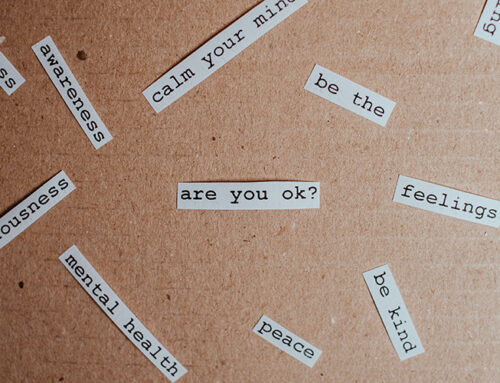Two seemingly unrelated aspects of our health – mental health and oral health, have an interesting cyclical and under-recognized connection: our mental health affects our oral health, and our oral health affects our mental health.
Mental health can have serious consequences on oral health. Several studies have shown that individuals with depression are more likely to neglect their oral health, leading to reduced home hygiene and infrequent dental visits. Depression is also associated with higher rates of substance abuse. Increased usage of alcohol, tobacco, and/or caffeine may cause teeth to erode and decay. Those suffering from bipolar disorder and obsessive-compulsive disorder may also experience severe consequences to their oral health. Some individuals with severe OCD may be over-vigorous with their brushing, wearing down the protective enamel layer of their teeth, and causing irritation and trauma to the gums and surrounding tissue. Additionally, the side effects like severe dry mouth, from many psychotropic medications used to treat mental illnesses can increase susceptibility to developing cavities and oral infections.
Oral health can also impact mental health and wellbeing. Poor oral hygiene can lead to a variety of issues, including discolored and/or decaying teeth, missing teeth, pain, and chronic bad breath. These factors can add to the individual’s stress and cause or worsen social anxiety and have a negative impact on one’s self-image, leading to feelings of distress or depression.
While the exact nature of the relationship between mental health and oral health is still being researched, it is well-established that such a connection exists. Mental health providers must actively take this into consideration when providing care to their patients by discussing all the side effects of medications and their implications. While some side effects may seem unimportant or insignificant to patients, mental health providers must emphasize how some medications can take a serious toll on oral and systemic health and stress the importance of proper oral hygiene and dental visits. Dentists should also be vigilant in collecting patients’ medical histories and maintaining an up-to-date list of the medications that their patients are taking. By understanding the potential issues that may arise, dentists can take the necessary steps to prevent them, such as reviewing proper home hygiene, recommending mouthwashes designed for dry mouth, and adjusting the frequency of dental visits. Ultimately, it is up to professionals from both the mental health and oral health fields to work together in order to holistically treat their patients.
Of course, besides psychiatrists and dentists, the individuals who suffer from depression or other forms of mental illness should be mindful of this important and often ignored relationship between dental and mental health.
 by Sonia Bhutra
by Sonia Bhutra
Sonia, a SAMHIN volunteer, is a third-year dental student at Stony Brook University and plans to become a pediatric dentist. In her free time, she enjoys painting, hiking, and experimenting with new recipes.
Feature image by EgoAltere from Pixabay






